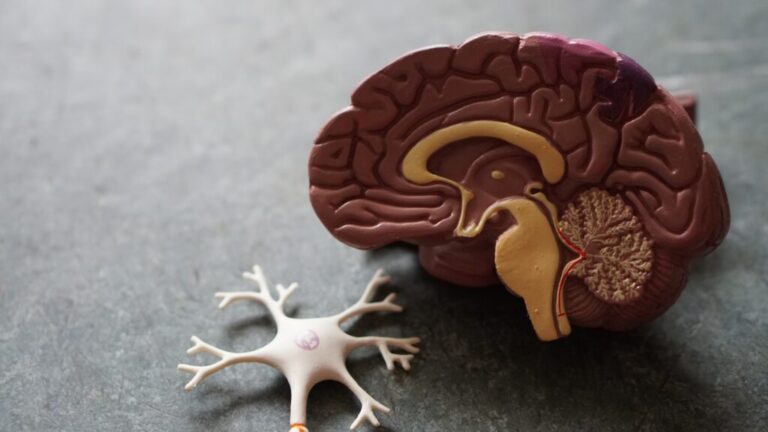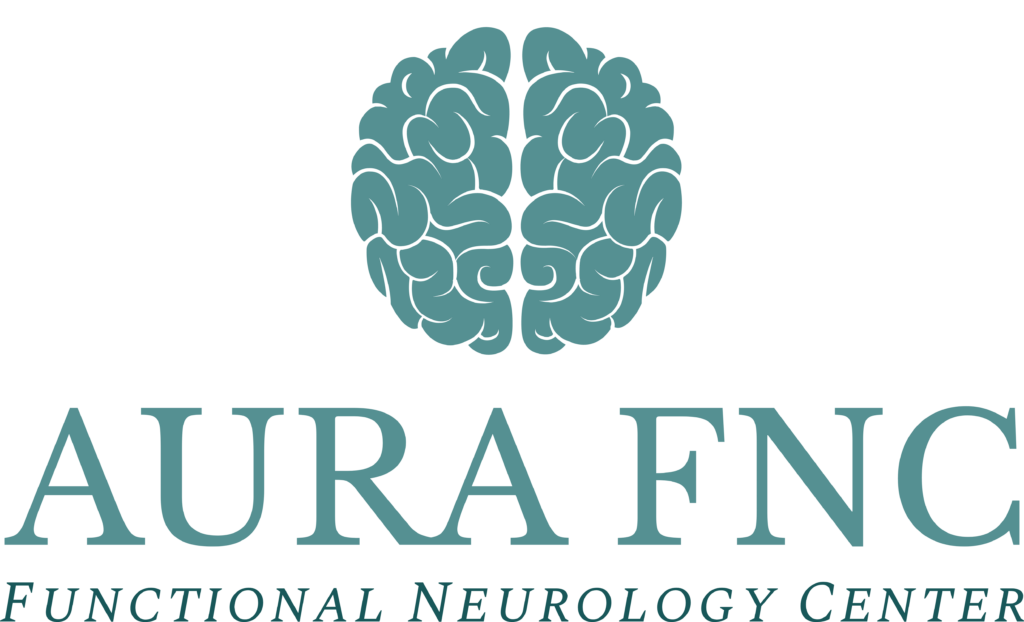What is Dysautonomia?
Understanding dysautonomia and how dysautonomia applies to you as a unique individual can help you find the right treatment plan. Dr. Diana Tyler, our head Functional Neurologist at Aura Functional Neurology Center (Aura FNC) educates on the symptoms, treatments, causes, types, questions, and answers that surround dysautonomia to offer a better understanding of this condition and shares more about how we treat dysautonomia patients at Aura FNC.

Dr. Diana Tyler DC, DACNB
Founder of Aura Functional Neurology Center. Board Certified Chiropractic Neurologist with experience treating dysautonomia at the Aura FNC office located right outside of Atlanta in Cumming, Georgia. Graduate of Palmer College of Chiropractic and Diplomate of the American Chiropractic Neurology Board.
Dysautonomia is a broad term that refers to any disorder of the autonomic nervous system (ANS) responsible for regulating many of the body’s automatic functions such as heart rate, blood pressure, digestion, and temperature control. It is an umbrella term that covers various conditions affecting the ANS.
There are many different types of dysautonomias. Some of the most common dysautonomias include Postural Orthostatic Tachycardia syndrome (POTS), Vasovagal Syncope or Neurocardiogenic Syncope, Autonomic Dysfunction, and Familial Dysautonomia (FD). Some of the commonly associated conditions are known as Ehlers-Danlos Syndrome (EDS), Mast Cell Activation Syndrome (MCAS), and Small Fiber Neuropathy (SFN).
Dysautonomia, by affecting various bodily functions, can significantly impact an individual’s quality of life, ranging from challenges in daily activities to limitations in social interactions.
The symptoms of dysautonomia can be dynamic, with fluctuations in severity and presentation, making the condition complex to manage and understand over time.
Emerging research indicates a connection between dysautonomia and long COVID, underscoring the importance of understanding and addressing autonomic dysfunction in individuals recovering from the lingering effects of the virus.

Dysautonomia Symptoms
Despite the different types of dysautonomia, they all share a common thread of dysfunction within the ANS, which results in a wide range of symptoms that can vary widely from person to person. Dysautonomia symptoms of the patients that Dr. Diana Tyler commonly sees can include dizziness, pre-syncope (near fainting), syncope (fainting), muscle stiffness, difficulty with movement and coordination, loss of bladder and bowel control, low blood pressure (90/60), difficulty regulating body temperature, abnormal blood pressure and heart rate responses, gastrointestinal dysfunction, joint hypermobility, skin elasticity, chronic pain, numbness, tingling, and burning sensations.
Unique Symptoms of Dysautonomia
Unique symptoms refer to the distinctive and varied manifestations of autonomic nervous system dysfunction (ANS) that set this condition apart from other medical disorders. These symptoms encompass a wide array of physiological and sensory changes, contributing to the complexity of dysautonomia diagnosis and management, and might include the following:
- Brain Fog:
Difficulty focusing, forgetfulness, and unorganized thoughts. - Sensory Perception Alterations:
Blurred vision, and heightened sensitivity to light and sound. - Respiratory Distress:
Shortness of breath, difficulty breathing, chest breathing, breath holding, dizziness with deep breathing. - Secretion Irregularities:
Dry eyes, dry mouth, impaired sweat and tear production, and can vary from one side of the body to the other. - Heart Rate Fluctuations:
Sudden anxiety/adrenaline surge, palpitations, or an unusual heart rate response. - Circulatory and Blood Pressure Issues:
Struggle with balance, dizziness, near-fainting, fainting, and chronic fatigue. - Digestive Issues:
Abdominal pain, acid reflux, constipation, or diarrhea. Food sensitivities and reactions. - Excretion Challenges:
Difficulty urinating, chronic constipation, frequent urinary tract infections (UTIs), and incontinence. - Temperature Dysregulation:
Impaired ability to regulate body temperature. Often experiencing lightheadedness with excessive heat exposure. - Pupillary Abnormalities:
Sluggish pupil reactions and difficulty adjusting to the light. May present as anisocoria (uneven pupil size from side to side). - Exercise Intolerance:
Difficulty engaging in physical activities. Can act as a trigger for a flare (worsening) in symptoms. - Impaired Cognitive Function:
Brain fog, difficulty with word-finding, impaired memory, difficulty with attention, and shifts in mood.
Dysautonomia Rehabilitation Programs
Dr. Diana Tyler offers dysautonomia treatment in the form of a 5-day, 10-day, or 15-day brain rehabilitation program at the Aura Functional Neurology Center office in Cumming, Georgia. These rehabilitation programs are customized to patients based on their symptoms and unique needs. Many of our patients who come for dysautonomia treatment at Aura FNC will travel from other cities in Georgia, fly in from other states around the U.S.A., and some will even travel internationally for our dysautonomia rehabilitation programs.
Dr. Diana Tyler treats dysautonomia from a functional and neurological perspective using neuroplasticity and brain training to positively influence the complex interactions between genetics, environmental factors, and changes in brain chemistry that surround dysautonomia. She focuses on strengthening the area of the brain dysfunction that is contributing to your dysautonomia symptoms while also addressing the contributing structural and metabolic factors.
Dysautonomia treatment at Aura FNC involves a combination of lifestyle and dietary modifications, nutritional support, neurological rehabilitation, and treatment of the spine. Our approach is based on Chiropractic Functional Neurology and the latest research in clinical neuroscience.
Aura FNC, a private practice with limited capacity, accepts a restricted number of patients annually for our dysautonomia rehabilitation programs. This allows for personalized 1:1 sessions with Dr. Diana Tyler, offering 15, 30, or 45 hours of individual treatment across 1, 2, or 3 weeks in a private office setting.
Causes of Dysautonomia
We know that dysautonomia is a neurological condition that can occur for a multitude of reasons. The causes of autonomic dysfunction range from rare genetic disorders, to idiopathic dysautonomia, where the culprit is unknown. Idiopathic dysautonomia can be triggered by genetic or environmental (exposure to pesticides or heavy metals) or involve underlying autoimmune dysfunction or previous exposure to infections (secondary to Lyme disease infections, viruses such as Epstein Barr/ Mono and certain vaccinations).
One of the most recent causes of dysautonomia, and one of the most prominent since the 2020 COVID-19 pandemic, is the link that dysautonomia has to long COVID. According to some of the latest research from the National Library of Medicine, vagus nerves are affected by COVID-19, which might contribute to some of the causes of dysautonomia and how it relates to long COVID.
In contrast to conventional approaches that frequently concentrate on symptomatic relief, Dr. Diana Tyler focuses on underlying factors contributing to dysautonomia. By comprehensively understanding dysautonomia challenges, our objective at Aura Functional Neurology Center extends beyond symptom alleviation. We promote the autonomic nervous system’s resilience and optimize its functional capabilities.
Management of dysautonomia requires a tailored strategy. The field of Chiropractic Functional Neurology, influenced by the teachings of the Carrick Institute, stands out as a valuable avenue.
Dysautonomia Triggers
Dysautonomia triggers are diverse and can vary among individuals, often prompting a range of autonomic responses. Identifying these triggers is important for individuals managing dysautonomia, as it enables them to adopt proactive measures and lifestyle adjustments. Recognizing that dysautonomic symptoms can be influenced by specific triggers empowers individuals to navigate their daily lives with greater awareness and tailor their environment to promote autonomic well-being.
Common dysautonomia triggers include:
Stress-related Triggers:
- Emotional and physical stressors can significantly impact the autonomic nervous system, exacerbating symptoms.
Fluid and Temperature-related Triggers:
- Dehydration: Inadequate fluid and sodium intake may lead to blood pressure fluctuations and increased symptom severity.
- Heat: Exposure to elevated temperatures can provoke dysautonomia responses, affecting heart rate and blood pressure.
Postural and Physical Activity-related Triggers:
- Prolonged Standing: Remaining upright for extended periods may contribute to orthostatic intolerance and dizziness.
- Overexertion: Excessive physical exertion may lead to fatigue and worsen autonomic dysfunction.
- Postural Changes: Swift positional shifts, such as standing up quickly, can provoke symptoms like tachycardia and dizziness.
Dietary and Medication-related Triggers:
- Certain Foods: Sensitivities to certain foods can trigger digestive symptoms and exacerbate dysautonomia challenges.
- Medications: Some drugs, such as stimulants, may have side effects that influence autonomic function, intensifying dysautonomia symptoms.
Environmental and Sensory-related Triggers:
- Sleep Disturbances: Disruptions in sleep patterns or insufficient sleep can contribute to autonomic nervous system dysfunction, impacting various bodily functions.
- Environmental Changes: Sudden changes in the environment, such as shifts in barometric pressure or exposure to certain allergens, may trigger dysautonomia symptoms.
- Noise Sensitivity: Sensitivity to loud or sudden noises can induce dysautonomia responses, affecting heart rate and increasing feelings of discomfort.
- Sensory Overload: Overstimulation of the senses, such as exposure to bright lights or crowded spaces, can exacerbate dysautonomia challenges.
Metabolic-related Triggers:
- Blood Sugar Fluctuations: Irregularities in blood sugar levels, whether due to dietary factors or conditions like reactive hypoglycemia, hypoglycemia, and diabetes can influence autonomic function and contribute to symptoms.
- Caffeine, as a central nervous system stimulant, can act as a metabolic-related trigger for dysautonomia by increasing sympathetic activity, influencing heart rate, blood pressure, and blood sugar levels, and potentially exacerbating autonomic dysfunction in sensitive individuals.
Types of Dysautonomia We Treat
POTS
Postural Orthostatic Tachycardia Syndrome (POTS) is a form of dysautonomia characterized by a rapid heart rate (tachycardia) that occurs upon standing, leading to symptoms such as lightheadedness, losing consciousness, dizziness, fatigue, and blood pooling in the legs. Individuals with POTS may experience an abnormal increase in heart rate without a corresponding drop in blood pressure, affecting their daily activities and quality of life.
Vasovagal Syncope
Vasovagal syncope, a common subtype of dysautonomia, manifests as sudden fainting episodes triggered by an overactive response of the autonomic nervous system, leading to a temporary drop in blood pressure. This condition often involves warning signs like nausea or feeling lightheaded before fainting, making it crucial to manage triggers and implement preventive measures. This response is triggered by a sudden change in internal pressure with coughing, sneezing, and bearing down during a bowel movement.
Autonomic Dysfunction
Autonomic dysfunction, a broad category within dysautonomia, encompasses various disorders affecting the autonomic nervous system's control over automatic bodily functions. From heart rate irregularities (constant fluctuations) to disturbances in blood pressure, autonomic dysfunction can manifest in diverse ways, emphasizing the need for personalized diagnostic approaches and targeted treatment strategies.
